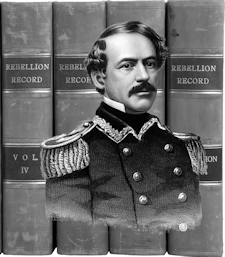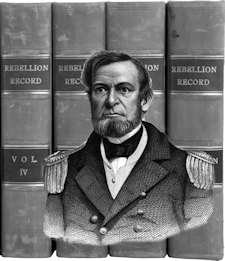January 23.—The rebel steamer Calhoun was captured off the Southwest Pass of the Mississippi River. Previous to leaving her the rebels set her on fire, which was with difficulty extinguished.—Philadelphia Ledger.
—A force of one hundred rebel cavalry entered Blandville, Ky., and carried off the books and records of the county. The captain of the band made a speech to the inhabitants, in which he said that the rebel citizens who shall or have suffered from the incursions of a Union army, shall be reimbursed by levies upon Union men.
—Several of the Secessionists of St. Louis, Mo., who were assessed for the benefit of the southwestern fugitives, by order of Major-General Halleck, having failed to pay their assessments, their property has been seized under an execution to satisfy the assessment, with twenty-five per cent additional, according to General Order No. 24.
To-day Samuel Engler, a prominent merchant, and one of these assessed, had a writ of replevin served on the Provost-Marshal, for the property seized from him, whereupon he and his attorney, Nathaniel Cox, were arrested and lodged in the military prison.
General Halleck issued a special order, directing the Provost-Marshal General to send Mr. Engler beyond the lines of the Department of Missouri, and to notify him not to return without permission from the commanding General, under the penalty of being punished according to the laws of war.
General Halleck adds: Martial law having been declared in this city by authority of the President of the United States, all the civil authorities, of whatever name or office, are hereby notified that any attempt on their part to interfere with the execution of any order from these headquarters, or impede, molest, or trouble any officer duly appointed to carry such order into effect, will be regarded as a military offence and punished accordingly.
The Provost-Marshal General will arrest each and every person, of whatever rank or office, who attempts in any way to prevent or interfere with the execution of any order issued from these headquarters. He will call upon the commanding officer of the Department of St Louis for any military assistance he may require.
—The second stone-fleet was sunk in Maffit’s Channel, Charleston, S. C, harbor.



